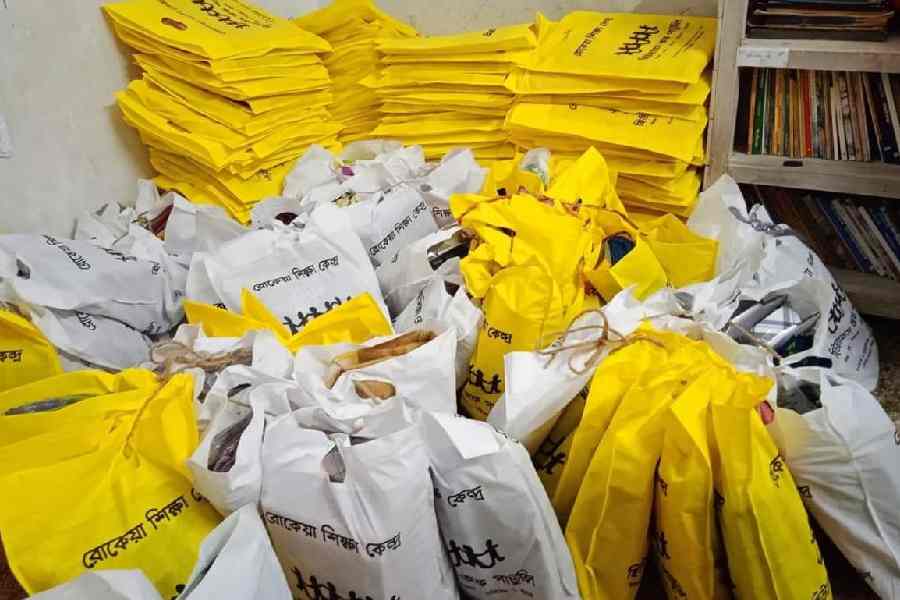Seven hundred women working in the unorganised sector got a new cotton sari each this Puja.
The saris were given by Rokeya Shikhsa Kendra, a learning centre for children of marginalised families who live in Patuli, Briji, News Garia, on the southeastern fringes of Calcutta.
The campaign, called One New Cotton Sari, was launched in 2020. This year, almost the entire campaign — from scurrying the neighbourhoods, finalising the recipients’ list, buying the gifts and delivering them — was helmed by the former and senior students of Rokeya.
The campaign started in the second week of August. The donations poured in till the first week of October. Before Sasthi, the gifts were delivered.
In addition to the cotton saris, 150 sets of new clothes were also given to the children from these marginalised families. They work as rickshaw pullers, construction labourers, plumbers, electricians and caretakers of many apartments and housing complexes off the EM Bypass. Most of the women work as ayahs, domestic helps and some are engaged in the 100-day job scheme.
The new clothes were bought from Burrabazar and Metiabruz.
“We have had many repeat donors. Some gave new clothes and others gave money. We must acknowledge the support of our donors and also our suppliers. We do not have a typical buyer-seller relationship. The traders have gone out of their way to help us, by offering discounts and customising the products,” said Kasturi Basu, documentary filmmaker and one of the founders of Rokeya.
One such supplier is Sirajuddin Molla, a garment manufacturer and wholesaler in Metiabruz. “I feel good for being able to help them. They are doing a noble work. I look forward to this deal every year,” said Molla.
Rokeya started as a learning centre in Patuli during the Covid-induced lockdown, when formal schools were shut. The schools have since reopened but Rokeya has emerged as their second home, offering classes in all subjects as well as hosting reading sessions, film screenings and cultural programmes for its pupils.
Bhabatosh Mondal, who studies political science at Bangabasi Evening College, is one of those steering the sari project.
“We divide ourselves into smaller groups and visit the neighbourhoods to finalise the list of the recipients. We do not issue coupons for collection at a specific place, like many puja organisers do. Instead, we visit their homes and deliver the gifts personally,” said Mondal.
“The festive season lights up our lives. But in many homes, darkness prevails even in the festive season. Our campaign is a collective effort that hopes to bring some light to these homes as well,” said Sahana Basu, who teaches Bengali at Rokeya.










